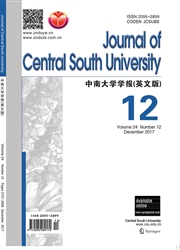

 中文摘要:
中文摘要:
A critical safe distance(CSD)model in V2V(vehicle-to-vehicle)communication systems was proposed to primarily enhance driving safety by disseminating warning notifications to vehicles when they approach calculated CSD.By elaborately analyzing the vehicular movement features especially when braking,our CSD definition was introduced and its configuration method was given through dividing radio range into different communication zones.Based on our definition,the needed message propagation delay was also derived which could be used to control the beacon frequency or duration.Next,the detailed CSD expressions were proposed in different mobility scenarios by fully considering the relative movement status between the front and rear vehicles.Numerical results show that our proposed model could provide reasonable CSD under different movement scenarios which eliminates the unnecessary reserved inter-vehicle distance and guarantee the safety at the same time.The compared time-headway model always shows a smaller CSD due to focusing on traffic efficiency whereas the traditional braking model generally outputs a larger CSD because it assumes that the following car drives with a constant speed and did not discuss the scenario when the leading car suddenly stops.Different from these two models,our proposed model could well balances the requirements between driving safety and traffic throughput efficiency by generating a CSD in between the values of the two models in most cases.
 英文摘要:
英文摘要:
A critical safe distance (CSD) model in V2V (vehicle-to-vehicle) communication systems was proposed to primarily enhance driving safety by disseminating warning notifications to vehicles when they approach calculated CSD. By elaborately analyzing the vehicular movement features especially when braking, our CSD definition was introduced and its configuration method was given through dividing radio range into different communication zones. Based on our definition, the needed message propagation delay was also derived which could be used to control the beacon frequency or duration. Next, the detailed CSD expressions were proposed in different mobility scenarios by fully considering the relative movement status between the front and rear vehicles. Numerical results show that our proposed model could provide reasonable CSD under different movement scenarios which eliminates the unnecessary reserved inter-vehicle distance and guarantee the safety at the same time, The compared time-headway model always shows a smaller CSD due to focusing on traffic efficiency whereas the traditional braking model generally outputs a larger CSD because it assumes that the following car drives with a constant speed and did not discuss the scenario when the leading car suddenly stops. Different from these two models, our proposed model could well balances the requirements between driving safety and traffic throughput efficiency by generating a CSD in between the values of the two models in most cases.
 同期刊论文项目
同期刊论文项目
 同项目期刊论文
同项目期刊论文
 Power Allocation Scheme Based on Sum Capacity Maximization for Signal-to-Leakage-and-Noise Ratio Pre
Power Allocation Scheme Based on Sum Capacity Maximization for Signal-to-Leakage-and-Noise Ratio Pre Outage performance of relay-assisted primary and secondary transmissions in cognitive relay networks
Outage performance of relay-assisted primary and secondary transmissions in cognitive relay networks Optimal time allocation for multi-antenna wireless powered heterogeneous sensor network communicatio
Optimal time allocation for multi-antenna wireless powered heterogeneous sensor network communicatio Power allocation and transmitter switching for broadcasting with multiple energy harvesting transmit
Power allocation and transmitter switching for broadcasting with multiple energy harvesting transmit Stochastic geometry analysis of downlink energy efficiency for a relay deployment scheme in relay-as
Stochastic geometry analysis of downlink energy efficiency for a relay deployment scheme in relay-as A novel reversible image data hiding scheme based on pixel value ordering and dynamic pixel block pa
A novel reversible image data hiding scheme based on pixel value ordering and dynamic pixel block pa 期刊信息
期刊信息
